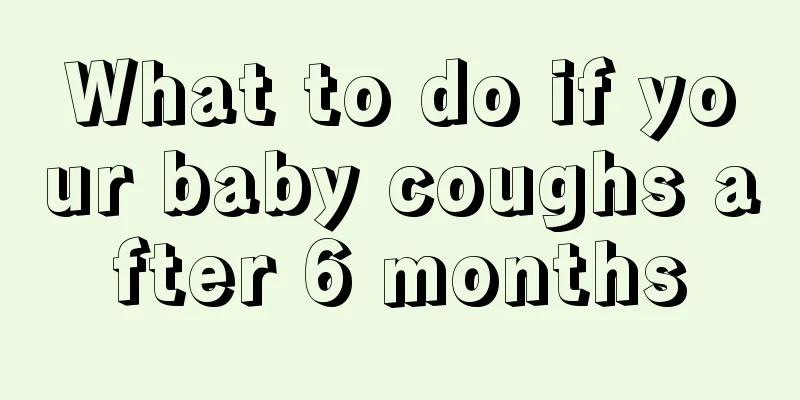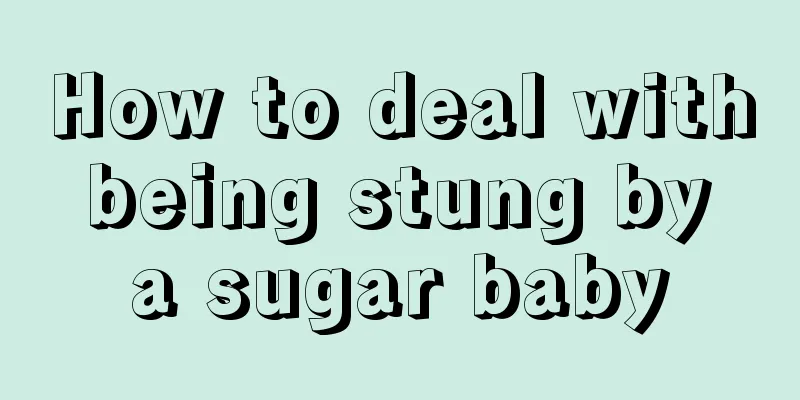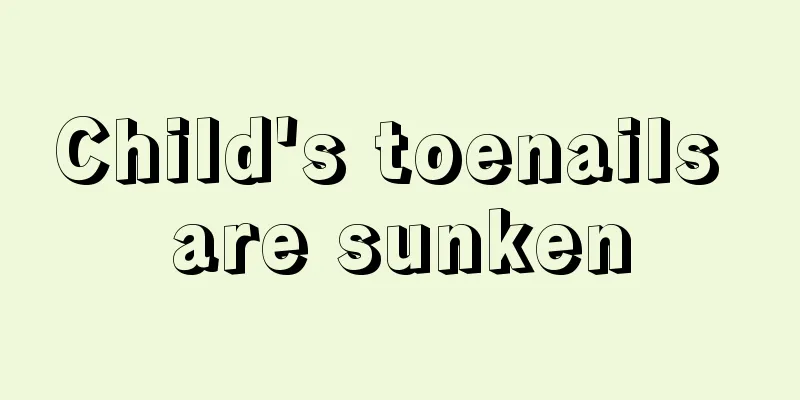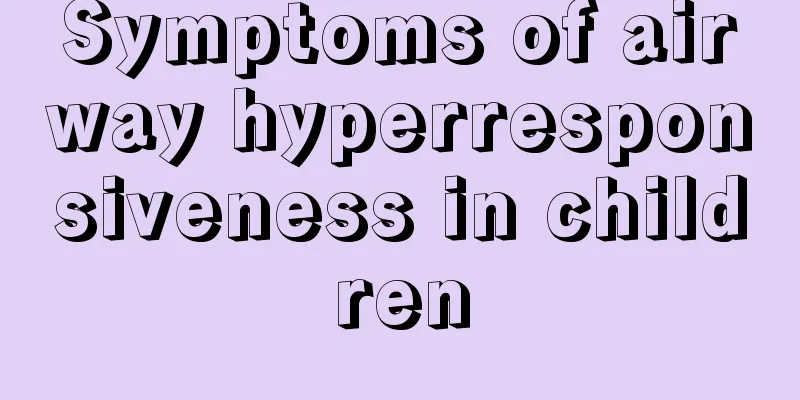What to do if your baby coughs after 6 months

|
The season when the weather fluctuates between hot and cold is the easiest to catch a cold, which will cause many babies who are still in their cradles to catch colds. The body's resistance is not very perfect at more than six months old, so they will cough or have a slight fever due to catching a cold. The cause of the cough needs to be found and then treated accordingly.
1. Cold and cough If the cough with phlegm is caused by a cold, the baby's tongue coating will be white, the cough will be thinner, white and sticky, and there will be nasal congestion and runny nose. At this time, you can eat some warm, expectorant and cough-relieving foods. For example: roasting oranges and steaming garlic are both very good therapeutic methods. 2. Wind-heat cough If the baby's tongue coating is yellow or red, the phlegm from coughing up is mostly yellow and thick and difficult to cough up, and there will also be sore throat, this is a wind-heat cough, which means that the baby has a lot of internal heat. At this time, the baby should eat some food that clears the lungs, resolves phlegm and relieves cough. For example: Sichuan Fritillary Bulbs stewed with pear, radish water, and water chestnut water. 3. Cough due to internal injury Coughs caused by internal injuries are usually long-lasting and recurring. There is also cough caused by cold and fever. Although the symptoms of cold and fever have disappeared, the cough has not gone away. At this time, parents should take their baby to see a doctor and take some medication. At the same time, they should give the baby some food that regulates the spleen and stomach, nourishes the kidneys, and replenishes the lung qi. The dietary therapy for cold and cough can be given to babies with internal injuries and cough.
1. To help your baby eliminate phlegm, you can let your baby lie on his back on a pillow with his head low and his feet high to make it easier for the phlegm to be discharged. When your baby coughs up phlegm, he or she may swallow it instead of spitting it out. Don't worry, phlegm will be discharged from the body along with feces and will not cause any harm to the body. 2. Pay attention to dietary adjustment, eat less spicy and sweet foods, and drink more water, which can flush the throat and prevent dryness of the throat. Let your baby eat some foods that can reduce phlegm and relieve cough, such as pears, radishes, and loquats. 3. Keep the air in the room fresh, exhaust the kitchen fumes, do not smoke in the house, and open the windows regularly for ventilation.4. Keep the indoor air moist. You can use an air humidifier. 5. Add or remove clothes and quilts in time. Do not cover yourself too thickly or wrap yourself too tightly, otherwise it will cause poor body regulation ability and low resistance. 6. Encourage your baby to rest more. Excitement or exercise will aggravate coughing and sputum. |
<<: Reasons for baby diarrhea in summer
>>: The difference between hand, foot and mouth disease and chickenpox
Recommend
What are the iron supplements for children?
Iron is an essential trace element for the human ...
9 month old baby has a cold
In fact, the immune system of a 9-month-old baby ...
How to prevent gastroesophageal reflux in premature infants
What is the phenomenon of gastroesophageal reflux...
What are the symptoms of a baby with high fever and convulsions?
The mother's womb is a relatively healthy and...
What to do if your child has seizures
The so-called infantile convulsion is also called...
Children have cold hands and feet
We all know that when babies are young, they are ...
What should I do if my 3-month-old baby has a poor appetite?
Many babies have various conditions, which cause ...
Can babies eat meat when they have a fever?
Since babies have relatively low resistance, they...
How to teach children addition and subtraction?
As children grow older, parents will send them to...
What is the cure for cerebral palsy in children?
Cerebral palsy seriously threatens the physical d...
What should I do if my child has diarrhea?
When there is a baby at home, the joy of parents ...
Normal temperature range for three-year-old children
In fact, when children are sick, the most common ...
What to do if you have cerebral palsy and drool
Drooling is a relatively common symptom of cerebr...
How to carry out rehabilitation training for children
Every parent hopes that their children can grow u...
Can children drink beer?
Beer is very common in our lives. We drink when w...









